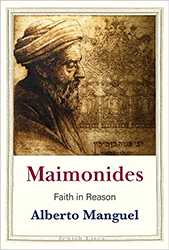According to Andrei Markovits, there is a certain personality characteristic in Vienna that they call Schmäh, “a mixture of charm and guile.” Guile can be best understood as a version of the Yiddish term chutzpah. Markovits possesses these characteristics in abundance as this entertaining memoir will make clear to the reader.
Markovits (Andy to his friends) is a professor at the University of Michigan who holds multiple chairs in Comparative Politics, German Studies, Political Science, Germanic Languages and Literature, and Sociology. He has written about left-wing movements in Germany, antisemitism, European football (i.e., soccer), and animal rescue networks. As his range of titles and subjects indicates, he is not a dry-as-dust academic nor a narrow specialist. He is also a Deadhead (a follower of the proto-psychedelic rock band The Grateful Dead), and above all, as he himself defines himself, he is a rootless cosmopolitan and proud of it.
How he came to occupy this anomalous but cherished social position is the main subject of the book, and its strongest chapters are the early ones recounting his family’s history and his early education. His parents were Hungarian Jews who wound up in the shifting borders of interwar Europe as residents of Timisoara, Romania. There, they suffered privations during the Second World War but managed to escape the fate of most of their Hungarian relatives in Hitler’s death camps.
Andy was born in 1948 and lived the first decade of his life in what came close to being a bourgeois environment in Communist-dominated, but multicultural, Romania. His father was a bank official, and the family was comfortable, if not especially well-off (they shared their small apartment with Soviet officers). Following his mother’s early death, Andy and his father were allowed to depart from Romania and landed nearly penniless in Vienna, presumably as a way station to Israel. But they settled in Vienna for nine years, where Andy blossomed as a student in an exclusive gymnasium and began his life-long love of American popular culture. That love (and his father’s respect for Anglo-American social and political values) led to them spending summers in New York and then eventually to Andy’s attending Columbia University, where he landed in the fateful school year of 1967 – 1968 and went on to receive three degrees.
While spending most of his academic career focused on Europe, Andy became thoroughly Americanized, speaking, by his own estimation, an accentless version of U.S. English. He also became culturally an American Jew, through the influence of a graduate school friend (a Canadian-born Orthodox Jew no less), something different from his assimilated European upbringing In Europe. Readers interested in the comparative cultures of European and American Jewry will find this section of the book most engaging. Andy’s progress through American academia and the establishment of his productive, scholarly resumé might be of less interest to general readers, but it is here that Andy demonstrates the chutzpah that permitted him to gain admission to the Center for European Studies at Harvard, from which he launched his wide-ranging studies and became a semi-celebrity in Germany. His speaking a charming Viennese-accented German helped a great deal.
The great Jewish historian Salo Baron defined the “lachrymose school of Jewish historiography,” that long litany of suffering and persecution that for many defines Jewish life and history. Andy Markovits’s memoir is the antidote to that school: a sunny, optimistic, and uplifting read. It doesn’t gloss over the sadness of post-War Europe, but it shows how that lost world could produce a vital future and how a stateless, rootless person could nonetheless turn that condition into a fulfilled life.





